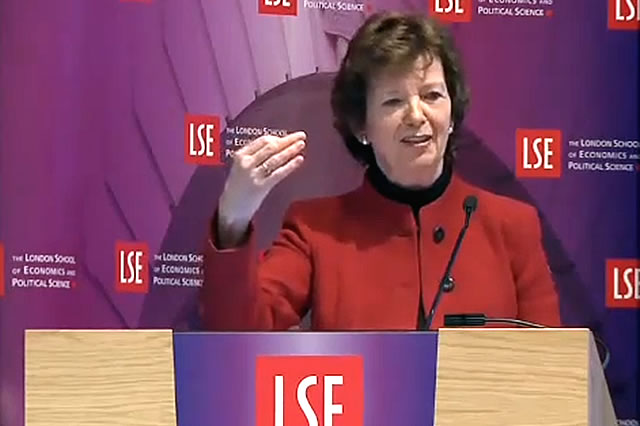Protecting the Most Vulnerable: Securing a Legally Binding Climate Agreement
President of the Foundation, Mary Robinson has highlighted how the debate on climate change is moving from stopping it, to how best to manage its effects.
In a lecture on 10 March 2011 at the London School of Economics entitled Protecting the Most Vulnerable: Securing a Legally Binding Climate Agreement, Mary Robinson discussed climate justice and its links to human rights and development to achieve a human-centred approach to the issue of climate change.
There was a large attendance at the lecture at the Centre for the Study of Human Rights which was chaired by Professor of Human Rights Law, Conor Gearty.
Following Mary Robinson’s address, there was a meaningful engagement from the audience on the issue of legally binding agreements.
Most felt that a legally binding deal is possible and a number of people raised the issue of how a human rights dimension could be included in such a deal.
A number of other issues were raised by members of the audience including the importance of mitigation, human rights and finance in a climate agreement, energy justice, carbon markets, the possibility of an international environmental court and the gender implications of climate change.
Related:
“Time is ticking on climate change: we urgently need a new, legally binding agreement with concrete measures to reduce greenhouse gases” – Mary Robinson, LSE Blogs, 31 May 2011
“Climate change is a human rights issue” – NewNet, 11 March 2011
“Legally-binding climate agreement could take three paths” – NewNet, 11 March 2011
Briefing note on the ‘legal form’ of a new climate agreement [9 pages, 105kb]


